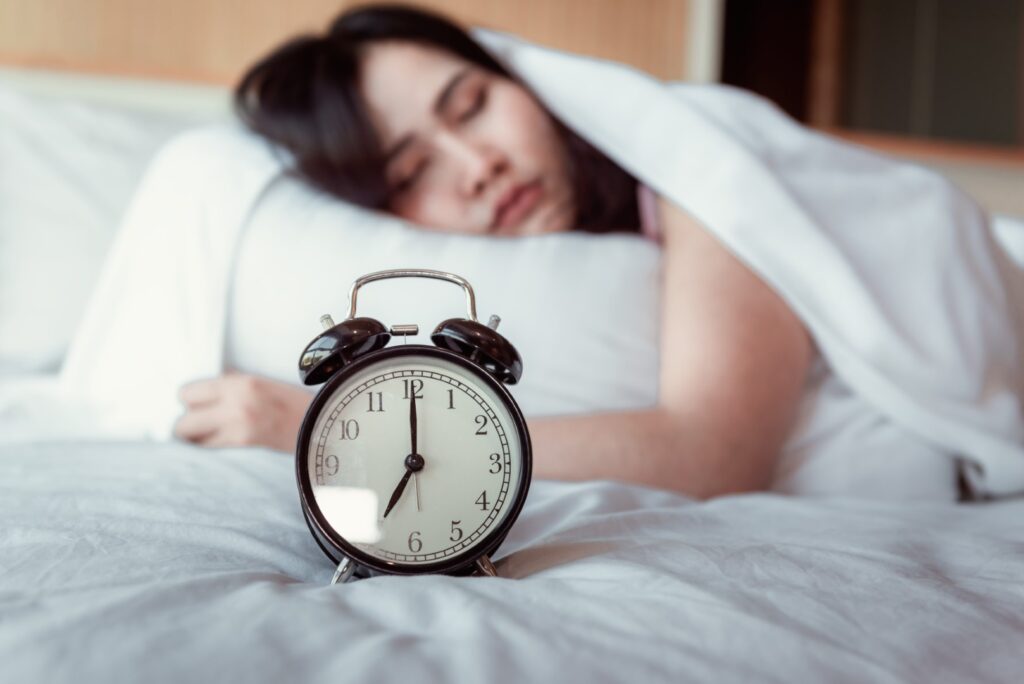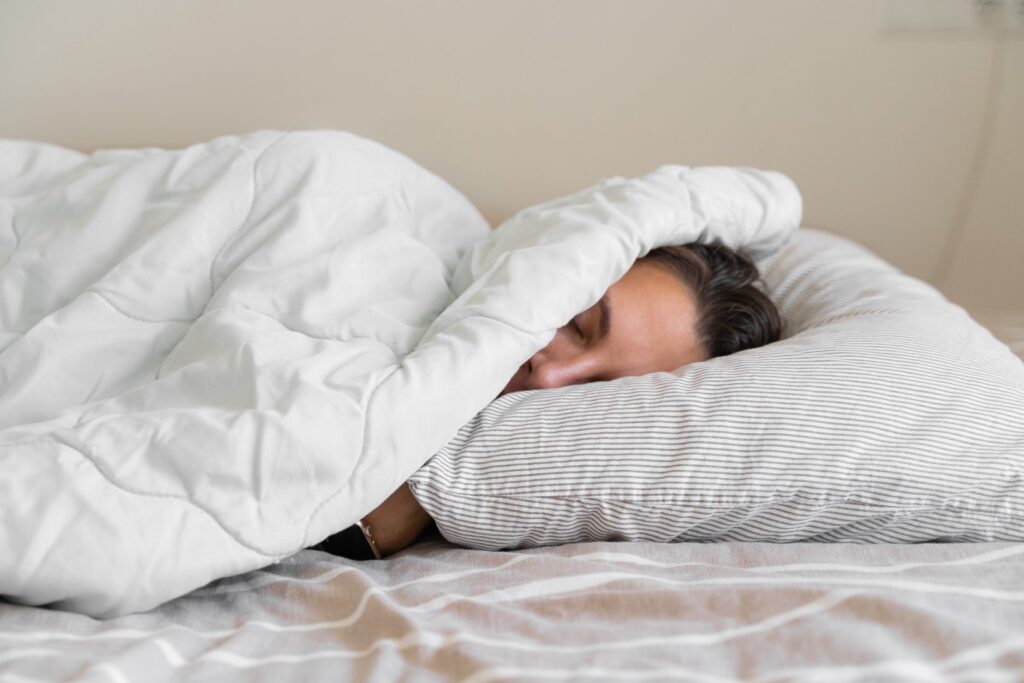Most individuals have direct experience with how sleep impacts their mental state. After all, there is a reason for the expression “got out of bed on the wrong side.” As it turns out, this idiomatic expression contains a great deal of truth. The relationship between sleep and mental and emotional health has been linked to depression, anxiety, bipolar illness, and other disorders.
Current data indicates that there is a two-way interaction between mental health and sleep, even though researchers are still attempting to determine the nature of this connection. Sleep disturbances are often a symptom of mental illness. Additionally, poor sleep, particularly insomnia, may contribute to the onset and progression of mental health disorders.

Sleep and Particular Mental Health Conditions
Reviewing how sleep is associated with a variety of distinct mental health illnesses and neurodevelopmental disorders makes the relationship between sleep and mental health more evident.
Depression
It is estimated that more than 300 million individuals globally are obese. Since 1883, JAMA, an international peer-reviewed general medical journal, has been continually published. Depression is a form of mood illness characterized by feelings of melancholy or despair. Approximately 75% of depressed persons exhibit symptoms of insomnia, and many also suffer from excessive daytime drowsiness and hypersomnia, which is excessive sleeping.
Historically, insomnia was considered a symptom of depression; however, mounting research demonstrates that insufficient sleep may cause or aggravate depression. It is considered that sleep issues and depression symptoms have a bidirectional connection in which they mutually reinforce one another.
SAD refers to Seasonal Affective Disorder.
The seasonal affective disorder is a kind of depression that often affects individuals during the winter months when there is less sunshine. Those living in northern regions, for instance, may have seasonal affective disorder in the autumn and winter. This illness is strongly associated with the interruption of a person’s internal biological clock, or circadian rhythm, which regulates various physical functions, including sleep. Thus, it is not unexpected that patients with the seasonal affective disorder tend to sleep excessively or insufficiently or suffer altered sleep patterns.
Anxiety Disorders
Anxiety disorders impact around 20% of adults and 25% of adolescents annually in the United States. These diseases are characterized by excessive dread or anxiety, which may impact daily living and increase the risk for health issues such as heart disease and diabetes. General anxiety disorder, social anxiety disorder, panic disorder, particular phobias, obsessive-compulsive disorder (OCD), and post-traumatic stress disorder are examples of anxiety disorders (PTSD).
Sleep difficulties are strongly associated with anxiety disorders. Anxiety and worry lead to a condition of hyperarousal characterized by a racing mind, and hyperarousal is considered a major cause of insomnia. Sleep issues may become an additional source of anxiety, causing anticipatory anxiety before the night that makes falling asleep more difficult.

Bipolar Disorder
Bipolar disorder is characterized by bouts of excessively high (mania) and low (depression) emotions (depression). Depending on the kind of episode, a person’s moods and symptoms are highly diverse; nonetheless, both manic and depressed phases may significantly affect daily functioning.
Depending on their emotional state, persons with bipolar illness have significantly altered sleep habits. During manic episodes, people often have less need for sleep, although they may sleep excessively during depressive episodes. Frequently, sleep disturbances remain between episodes].
Methods for Improving Sleep and Mental Health
Mental health issues may interfere with sleep, and sleep deprivation can impact mental health. This multilayered interaction creates intricate links between sleep and mental diseases, but it also implies that therapy for both difficulties may be administered simultaneously. Taking steps to enhance sleep may even be a component of a mental health prevention approach.
The appropriate therapy for mental health and sleep difficulties relies on the individual’s unique circumstances. Because these disorders may have a significant influence on the quality of life, it is crucial to obtain adequate treatment, which involves collaborating with a competent medical practitioner.
Cognitive-Behavioral Counseling
Cognitive behavioral therapy (CBT) is a kind of psychotherapy sometimes known as talk therapy. It examines mind patterns and attempts to reformulate negative ideas in new ways.
For particular conditions, such as depression, anxiety, and bipolar disorder, a variety of CBT approaches have been created. In addition, cognitive behavioral therapy for insomnia (CBT-I) has a track record of decreasing sleeping disorders. A significant clinical experiment also showed that CBT-I may decrease symptoms of a variety of mental health disorders, hence enhancing emotional health and reducing psychotic episodes.
Whether and how CBT approaches may be combined or sequenced to treat both sleep and mental health issues is the topic of continuing study, but for many patients, assistance from a skilled counselor to reframe their thinking can significantly improve both their sleep and mental condition.
Improve Sleep Habits
Poor sleep hygiene is a frequent cause of sleeping disorders. Enhancing sleep hygiene by fostering sleep-friendly behaviors and a favorable bedroom environment may significantly reduce sleep disturbances.
Among the actions that may be performed to improve sleep hygiene are:
- Having a fixed bedtime and maintaining a consistent sleep routine
- As part of a typical pre-sleep practice, including relaxation techniques and other methods to unwind before night.
- Evening avoidance of alcohol, smoking, and caffeine
- One or more hours before bedtime, dimming the lights and putting away electronic gadgets are recommended.
- Getting frequent exercise and exposure to natural light throughout the day
- maximizing the level of support and comfort provided by your mattress, pillows, and bedding
- preventing extra light and noise from disturbing sleep
Finding the perfect habits and bedroom layout may need some trial and error, but this approach may help you fall asleep faster and remain asleep throughout the night.



